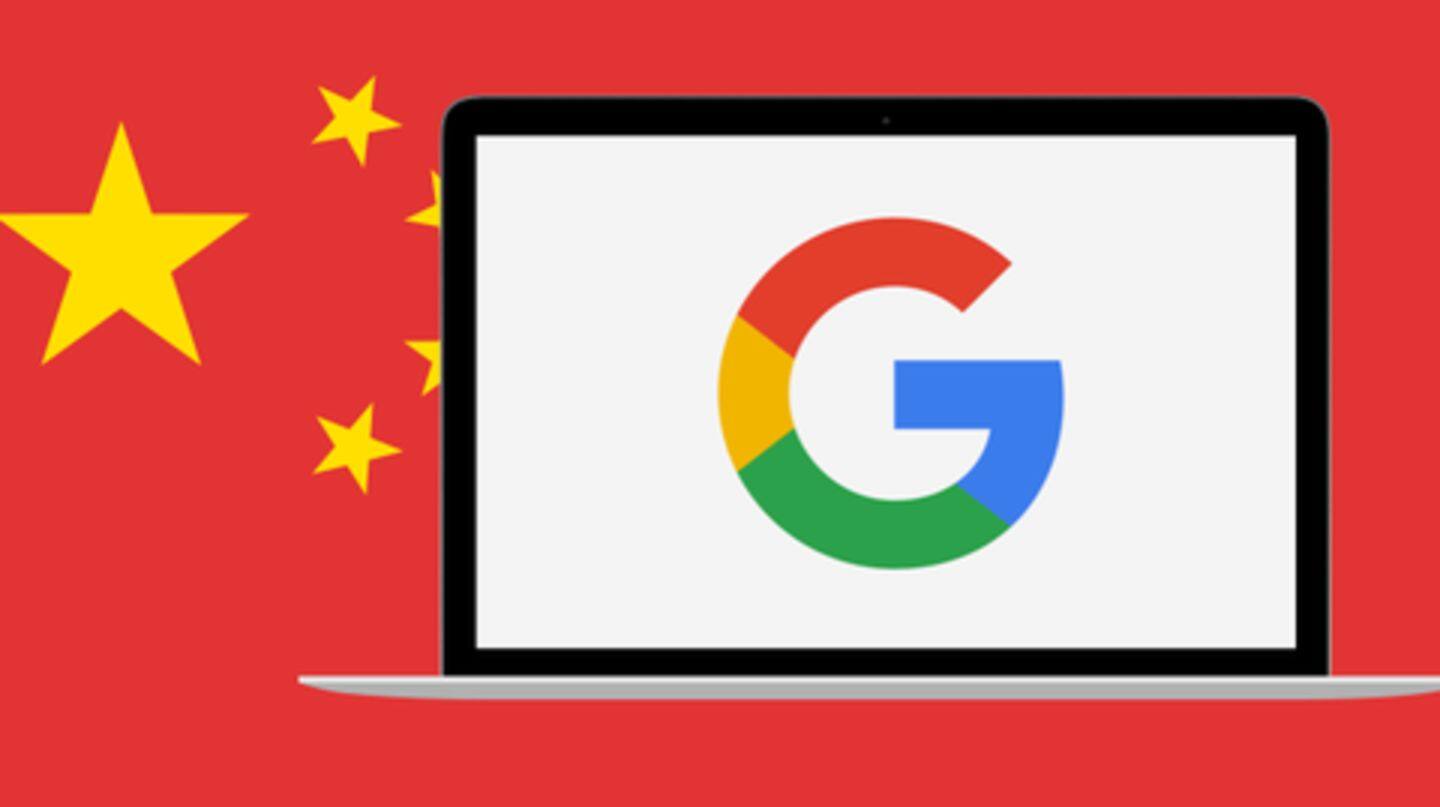
Google is increasingly turning 'evil', and its employees aren't happy
What's the story
More than a month after Google CEO Sundar Pichai confirmed that the tech giant was making a censored search engine for China, Google employees have gone public with their protest against the development of the engine. After months of internal protests, over 330 Google employees have lent their names to a public petition protesting the company's plans, and the list is growing. Here's more.
Petitions
The employee petition coincides with an Amnesty International petition
The petition by Google employees, which is on Medium, coincides with another public petition by human rights watchdog Amnesty International protesting Google's plans to launch the censorship-compliant search engine in China, dubbed Dragonfly. In both petitions, the main concern is that if Google indulges China with a censorship-compliant search engine for profit, it could well do so in other countries, thereby marking a major shift in its policy on censorship.
Quote
An excerpt from the petition by Google employees
"Our opposition to Dragonfly is not about China: we object to technologies that aid the powerful in oppressing the vulnerable, wherever they may be...Dragonfly in China would establish a dangerous precedent at a volatile political moment, one that would make it harder for Google to deny other countries similar concessions," read the petition by Google employees.
Stance
Google's stance has taken an about-turn since 2010
Indeed, Google's decision to take up the project would seem to underline the concern. In 2010, Google exited China owing to its censorship laws, and co-founder Sergey Brin had then called China's policies "totalitarian". While not much has changed about Chinese online censorship policies since then, it seems Google's stance has changed, wherein the company is looking to compromise its ethics for entry into a massive, promising market.
Sugarcoating
Google, of course, has sugarcoated its shift in stance
Google, of course, has sugarcoated this shift in its stance, with Pichai earlier stating that the tech giant needed to take a "long-term view" of its decision to launch a censored search engine, "given how important the [Chinese] market is, and how many users there are". He had also said that censored search engine would serve over 99% of search queries in China.
Dragonfly
What we know about project Dragonfly isn't particularly encouraging
But, will it? According to a leak by an employee, Google's censored search engine will automatically identify and exclude websites blocked by China's so-called Great Firewall. Further, it will also "blacklist" some sensitive search queries, for instance "anti-communism", "human rights" etc. so that no search results are shown for these queries. If Google thinks returning results for "cute cat videos" outweigh important social and political queries, it is doing a disservice to itself.
Transgression
Google is increasingly transgressing ethics it had set for itself
While Google seems to have missed this point, its employees, evidently, have not. Time and again, Google's employees have turned out to be the moral compass which keeps the company's "Don't be evil" motto alive, but despite their best efforts, the tech giant seems to be increasingly willing to compromise its ethics for profitable projects that transgress the ethical boundary it had initially set for itself.
Project Maven
Employees had forced Google's hand in scrapping Project Maven
Earlier this year, over 3,000 Google employees voiced their objections to working on Project Maven, which was a US military project involving the use of AI. Employees, many of whom joined Google "with the company's values in mind", had demanded more transparency and accountability about the ethics of projects undertaken by the company. With Project Maven, the employees had the last word.
#MeToo
Google's sexual harassment policies, too, changed under employee pressure
More recently, thousands of Google employees staged a global walk out to protest against how the company dealt with sexual harassment and assault allegations, and demanded an end to forced arbitration that allowed Google to settle such disputes behind closed doors. The protest erupted after sexual harassment allegations surfaced against Android creator Andy Rubin, and this time too, the employees, at least nominally, emerged victorious.
To conclude
Capitalism is winning the war against ethics
That said, it remains to be seen how long Google's employees can keep up this pressure on the company to adhere to certain ethical standards. Google, for its part, seems to be less and less bothered about the implications of some of policies and its projects, with profits and corporate image becoming more important than not being 'evil'. For the nth time, capitalism seems to be getting the better of ethics.